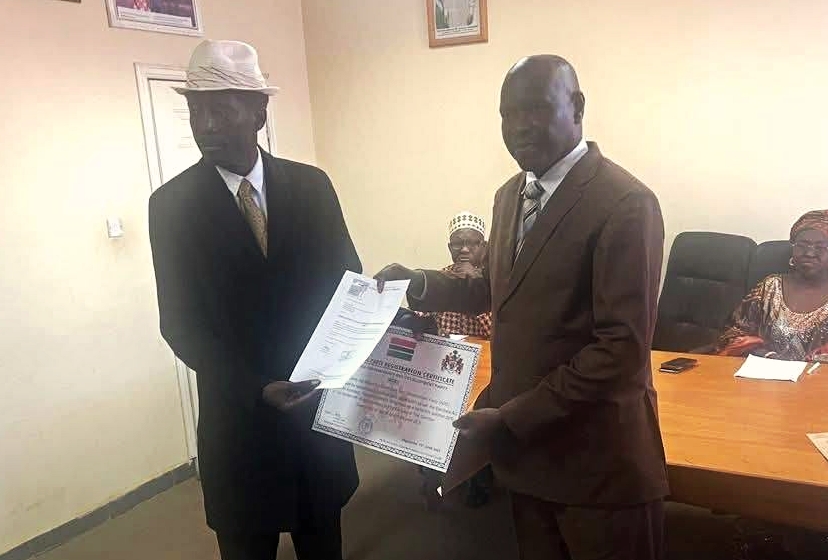Gambiaj.com – (Banjul, The Gambia) – The Independent Electoral Commission (IEC) has announced the official registration of the Alliance for Democracy and Development (ADD) as a bona fide political party in The Gambia, expanding the country’s growing roster of political contenders.
In a press release dated June 12, 2025, the IEC confirmed that the ADD met all legal requirements stipulated under Section 105 of the Elections Act, 2009 (as amended). The party, led by Secretary General and Party Leader Malik Camara, has established its secretariat in Brusubi Phase One.
The party’s symbolism and branding seek to promote national unity. The ADD’s emblem features a cotton tree surrounded by nine people representing The Gambia’s diverse tribal makeup, while its motto reads, “Together As A Nation.” The party’s colors are red (above) and green (below), and its acronym is ADD.
This registration makes ADD the latest entrant in The Gambia’s increasingly pluralistic political arena, adding to the growing number of parties aiming to shape public discourse and electoral outcomes.
For voters, the emergence of the ADD offers another option, potentially appealing to those seeking alternatives to the dominant political parties such as the United Democratic Party (UDP), the National People’s Party (NPP), and the People’s Democratic Organisation for Independence and Socialism (PDOIS).
The ADD’s emphasis on unity and inclusion may attract citizens disillusioned by political fragmentation and ethnic undercurrents in national politics.
Real Political Offer vs. Nominal Influence
Since the country transitioned from authoritarian rule in 2017, the number of registered political parties has steadily increased, with more groups attempting to reflect the voices and identities of different segments of Gambian society.
While the number of parties has grown—exceeding two dozen as of 2025—their actual influence on governance, policy formation, and responsiveness to citizen demands remains uneven.
The proliferation of parties does not always translate into substantive political competition. Many smaller parties struggle to establish nationwide structures, field credible candidates, or influence national discourse.
Without substantial grassroots engagement and policy platforms, these parties often remain symbolic presences during elections, with minimal impact on legislative processes or executive decision-making.
While elections have become freer and fairer, most political parties—beyond a core few—lack institutional strength and resources to consistently mobilize voters or demand policy accountability. Civil society and the media continue to play more visible roles in shaping governance agendas, often outperforming smaller parties in voicing social and economic concerns.
The ADD’s challenge will be to move beyond registration and symbolism to genuine political relevance: developing coherent policy proposals, engaging with the electorate, and contesting elections competitively. Its focus on national unity may resonate, but whether that can translate into electoral gains and policy influence will depend on strategic organization and grassroots credibility.
As The Gambia approaches future local and national elections, the entry of ADD offers symbolic hope for political inclusion. But it also reaffirms the need for party reforms, coalition-building, and meaningful representation that transcends numbers and slogans—ensuring that political plurality leads to better governance and societal responsiveness.










